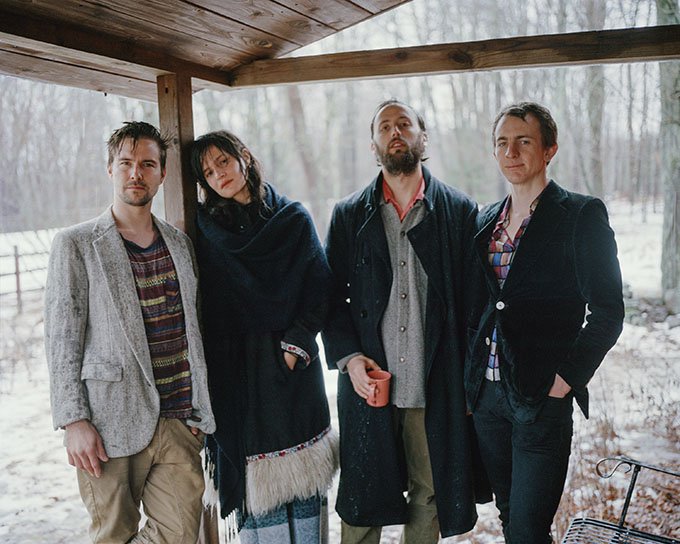Show Review: Big Thief at Bunk Bar


If you happened to observe the roll-out of singles from Big Thief’s debut album, Masterpiece, it pushed distinct parts of the Saddle Creek-released record. “Masterpiece” and “Real Love” constituted expanding, heavily tenored rock songs from an album that — in its entirety — housed a great deal more of frontwoman Adrianne Lenker’s folk-inspired solo work.
Thursday night’s show at Bunk Bar (with the 12-string balladeer Luke Temple) perhaps showed why. Big Thief punched up even its softer songs. The band doubled solos, Lenker screamed once during “Vegas,” and requested her vocals turned up right before performing the title track. On the record, you’re more likely to notice the modest, excellent songwriting and the often odd production that represses Buck Meek’s lead guitar and tacks home recording outros onto a handful of songs. Live, it’s apparent what a clear and capable rock band Big Thief is, elevated by the tactility of Lenker’s voice, which is home somewhere on the indie rock (and Saddle Creek) tree of Rilo Kiley, but with Jenny Lewis’ prenatural swagger replaced by an undeniable falsetto still intact at the set’s conclusion.
With the band half-circled by an attentive crowd, Bunk Bar’s lighting cast an odd emphasis on a piece of the live experience. While deep blue and purple obscured the faces, the brightest accidental spotlight landed ankle height on Lenker. While bassist Max Oleartchik half-sat upon his amp, and drummer James Krivchenia crouched through all his pounding, and Meek slithered deep into knee bends and wrenched his open mouth sideways on guitar hits, Lenker bounced like a boxer trying to remember to stay on the balls of her feet. (Save the time she actually jumped on Bunk Bar’s wooden stage, the one she joked sounded like someone walking around in an attic, to produced guitar growling effect with her impact.)
The frontwoman’s light stance reflected a defining piece of Big Thief songwriting. To great effect, Lenker favors the formal and narrative technique of the instant lyrical ending, letting the song die upon a word, most notably closing “Paul” with a moment of passing regret and quickly shutting the book on a short story the narrator implies should never have been. At least half of Lenker’s songs relish in the vacant space around their endings, marooning you on their last words, as the songwriter could be seen softly jigging another two or three measures into the empty beats.»
– Chance Solem-Pfeifer




